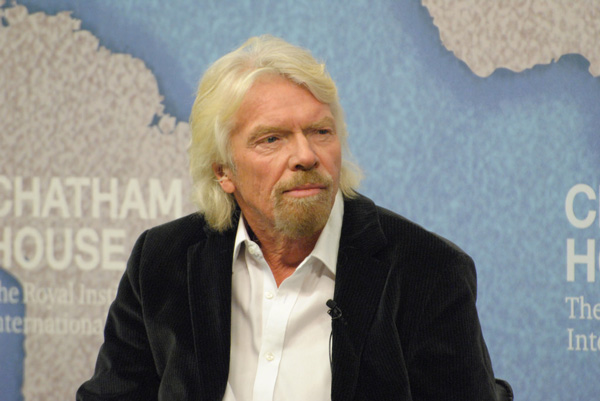The Importance of Dyslexia Awareness Month
October is Dyslexia Awareness Month, an important time to spread understanding and support for those with dyslexia.
Table of Contents
ToggleRaising awareness about dyslexia is crucial so that those impacted can get the support they need.
During Dyslexia Awareness Month, we can help by sharing facts, personal stories, and resources. This promotes understanding and shows those with dyslexia that they are not alone. Greater awareness leads to earlier identification and intervention, which can make a major difference in helping dyslexic individuals thrive academically and beyond.
Related: Learn about how you can get involved.
Please support our efforts to help people with dyslexia and other learning disabilities. Please donate today.
What Is Dyslexia
Dyslexia is a common learning disability that affects reading, writing, and spelling skills. While dyslexia differs for each individual, common challenges include difficulty decoding words, poor spelling, and slow reading speed.
It is estimated that over 40 million American adults are dyslexic however only 2 million are diagnosed. 20% of school-age children in the U.S. are dyslexic. Many adult dyslectics become aware of their dyslexia when their children are diagnosed. Dyslexia appears to be familial and linked to certain genes that affect how the brain processes reading and language, as well as risk factors in the environment.
Dyslectics are not stupid nor are they lazy. Contrary to this myth, dyslectics exhibit strength in higher-level cognitive functions, such as reasoning, critical thinking, concept formation, or problem-solving. Dyslectics exhibit creativity, resourcefulness and success in the arts, sports and business, building on these special strengths to compensate for their weaknesses.
VIDEO: October’s Dyslexia Awareness Month
Advocating for Dyslexia Awareness: How to Get Involved
Awareness months like this are also an opportunity to advocate for better policies and accommodations. We need measures like screenings, educational support, assistive technology, and teaching approaches tailored to diverse learning needs. With more widespread dyslexia awareness, we can make progress toward inclusive classrooms and workplaces where those with dyslexia have equal opportunities to demonstrate their abilities.

Inspiring Dyslexic Achievers
Dyslexia, a condition often associated with challenges in reading and writing, has not hindered countless individuals from making remarkable contributions in a wide array of fields. T
Below are a few of the famous, successful individuals sharing their experiences with dyslexia, becoming advocates for awareness, diagnosis, and support.
- Steven Spielberg – The Master Storyteller: One of the most celebrated film directors in history, Steven Spielberg, known for iconic films like “E.T.” and “Jurassic Park,” is dyslexic. He attributes his ability to think visually, a common trait among dyslexic individuals, to his success in storytelling and filmmaking.
- Pablo Picasso – The Artistic Genius: The legendary artist Pablo Picasso was dyslexic. His revolutionary contributions to the world of art, including co-founding the Cubist movement, have left an indelible mark on art history. His unique way of seeing and interpreting the world is often associated with his dyslexia.
- Sir Richard Branson – The Entrepreneurial Maverick: Founder of the Virgin Group, Sir Richard Branson, is not only a dyslexic entrepreneur but also a space enthusiast. His resilience and determination have driven him to excel in the business world, and he has been instrumental in various industries, including music, airlines, and space travel.
- Agatha Christie – The Queen of Mystery: Agatha Christie, one of the best-selling authors of all time, was dyslexic. Her ability to craft intricate mysteries and unforgettable characters stands as a testament to the creativity and imagination often seen in dyslexic individuals.
- Dr. Carol Greider – Nobel Prize Winner in Physiology: Dr. Carol Greider, a Nobel laureate in physiology and medicine, has made groundbreaking contributions to our understanding of telomeres and their role in aging and cancer. Her journey as a scientist with dyslexia showcases the determination and innovative thinking that many dyslexic individuals possess.
- Tommy Hilfiger – The Fashion Icon: Tommy Hilfiger, a globally renowned fashion designer, overcame his dyslexia to create a fashion empire. His story serves as a source of inspiration for those seeking success in the creative and entrepreneurial realms.
- Albert Einstein – The Father of Modern Physics: Albert Einstein, the theoretical physicist who developed the theory of relativity, is believed to have been dyslexic. His groundbreaking theories revolutionized our understanding of the universe and demonstrated that dyslexia does not limit one’s intellectual potential.
These accomplished individuals, among many others, exemplify the idea that dyslexia is not a barrier to success but rather a unique perspective that can lead to extraordinary achievements. Their stories inspire countless others to embrace their differences and channel them into making significant contributions in various fields, redefining what is possible for individuals with dyslexia.
Related: Browse a list of dyslexic celebrities and famous people affected with dyslexia.
Explore additional Dyslexia related information and resources.
- Famous people with Dyslexia
- Dyslexia and Learning Disabilities FAQ
- Assistive Technology Tools for Dyslexia and Learning Disabilities
Conclusion
The challenges of dyslexia are lifelong, but with greater understanding, we can ensure that individuals reach their full potential. Dyslexia Awareness Month reminds us to rethink conventional ideas about intelligence and honor the strengths and talents of neurodiverse minds. By promoting awareness, we create a more compassionate, supportive world for those with dyslexia.


